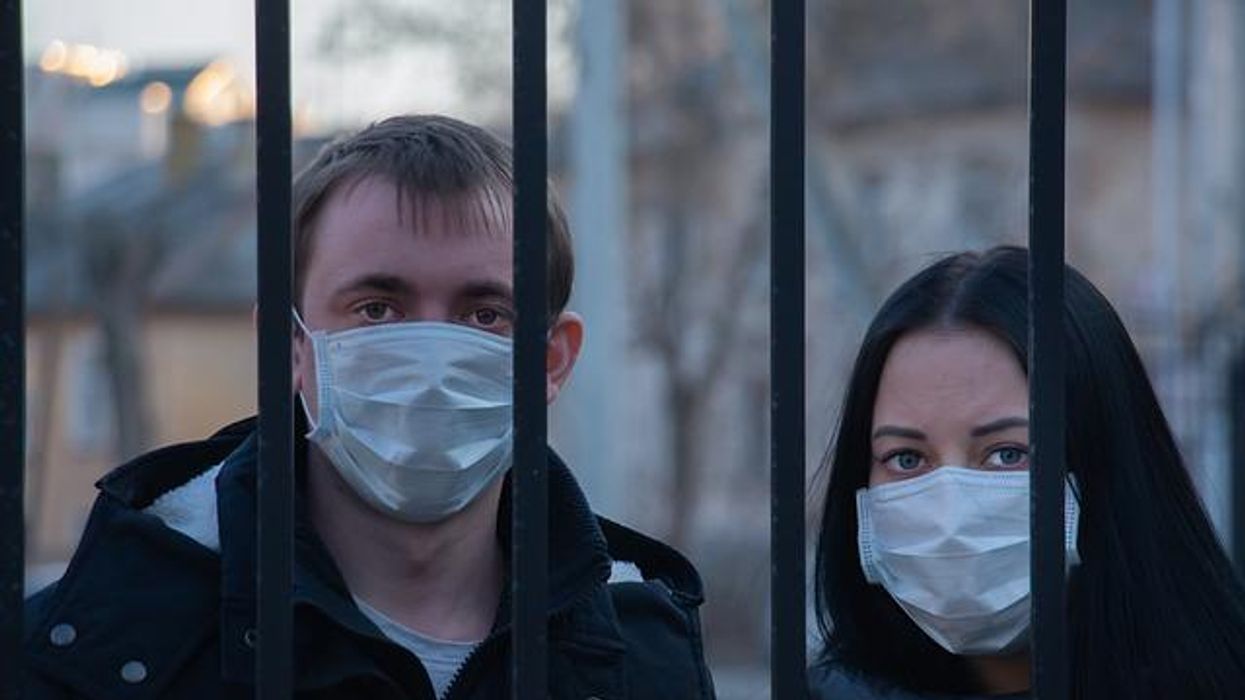We Are Not Helpless
This is a tightrope column, the kind you'd rather not write, about an event you don't feel you can ignore. You tread carefully, but you want people to pay attention as you do.
Four days after Christmas, five days before he was to be sworn into the U.S. House of Representatives, Congressman-elect Luke Letlow died of complications from COVID-19 at a hospital in Shreveport, Louisiana.
Letlow was 41 years old. He leaves behind his wife, Julia, and two young children, Jeremiah and Jacqueline. He is the highest-ranking politician to die of COVID-19.
Advocate reporter Sam Karlin provided additional details of Letlow's illness and death: "He was in critical condition but had recently shown signs of improvement when he 'apparently suffered a cardiac event this evening that was refractory to all resuscitation efforts,' said Dr. G.E. Ghali, of LSU Health Shreveport.
"Ghali previously said Letlow was being treated with the antiviral drug Remdesivir and steroids. Asked if Letlow had any underlying conditions that would have made his death more likely, Ghali said in a text message, 'none. All COVID related.'"
There's more to this sad story.
Washington Post reporter Tim Elfrink: "As the coronavirus ravaged Louisiana, Letlow urged residents to follow social distancing guidelines and to listen to doctors ...
"But photos on his Twitter page show he had an inconsistent record of wearing masks while campaigning, sometimes covering his face at meet-and-greets but also speaking indoors without a mask on to rooms of mask-free residents. At a candidate forum in October, Letlow urged the state to ease pandemic restrictions, saying, 'We're now at a place if we do not open our economy, we're in real danger.'"
And the tightrope begins to wobble.
This is a family's tragedy, and I plead that no one uses it for a smug release of pent-up fears and frustrations. We should all hope to avoid this COVID-19-related side effect, the self-inflicted strangling of our hearts. Surely, if we're lucky enough to survive this pandemic, we want to recognize ourselves when it's over.
There is no ignoring Letlow's social media posts of unmasked gatherings. He was young and healthy, and most of us want to believe that makes a person immune from the worst ravages of COVID-19. His death is a shock and lays bare the lie that only the oldest and infirm need to worry about COVID-19 guidelines. The randomness of this monster is one of its most frightening traits:
I pick you and you and you ...
COVID-19 restrictions are not like a diet. We can't skip a day of following the plan and make up for it on the next. A single unmasked exposure to someone infected with COVID-19 and we are no longer in control of what happens next. As of this morning, Dec. 30, more than 340,000 Americans have died of COVID-19. We have every reason to know that number will continue to grow, as the 20 million vaccinations once promised by the Trump administration by the end of this month have dwindled to 2 million.
We are not helpless.
We can wear masks. We can stay home if we don't have to leave for work, medical appointments or essential goods. When we are out, we can stay at least six feet away from others and walk out of places that do not enforce the wearing of masks. We can avoid gatherings — we must — for a while longer.
This is how we help one another stay alive.
I keep thinking of Elaine Minichino, who lost her 32-year-old son Adam Hergenreder in July. He was born with special needs, and he lived with her all of his life, until he was in the hospital with COVID-19.
"They texted constantly instead, even in the middle of the night," The New York Times reported. "On July 6, Adam pinged his mother just after midnight to say he was feeling surprisingly good. 'Glad you're feeling better,' she wrote, with a kissy-face emoji. 'Talk to you tomorrow unless you need me.' Adam wrote right back. 'OK love you I'll only call if I need you I love you so much and miss you like crazy already.'"
Those were his final words to his mother.
Her husband Jim told the Times that he used to believe that time heals all wounds. No longer. Not after watching his wife grieve in these six months.
"This wound," he said, "is unhealable."
The tightrope snaps, and down we go.
Connie Schultz is a Pulitzer Prize-winning columnist and professional in residence at Kent State University's school of journalism. She is the author of two non-fiction books, including "...and His Lovely Wife," which chronicled the successful race of her husband, Sherrod Brown, for the U.S. Senate. She is also the author of The New York Times bestselling novel, "The Daughters of Erietown." To find out more about Connie Schultz (schultz.connie@gmail.com) and read her past columns, please visit the Creators Syndicate webpage at www.creators.com.









